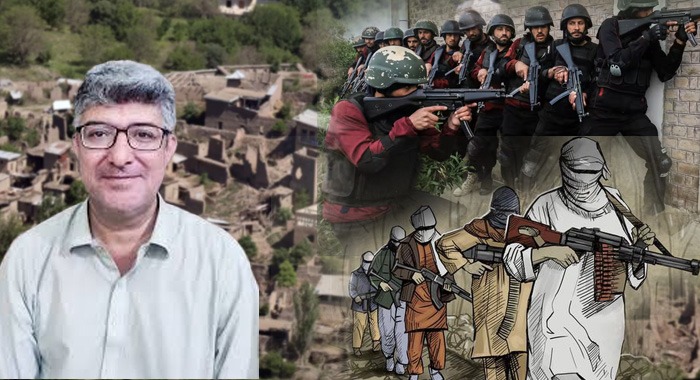Fakhar Kakakhel
The deteriorating law and order situation in Pakistan’s former tribal areas is not the result of sudden chaos; it is a direct consequence of long-standing governance failures. The core issue has always been a chronic absence of state structures in these regions, once known as the Federally Administered Tribal Areas (FATA). Historically, these areas were exempt from the jurisdiction of courts and policing systems, creating a political and security vacuum that has never been adequately addressed, despite multiple promises and financial allocations from the federal government.
When FATA was merged into Khyber Pakhtunkhwa, the central government announced a major support package that included Rs500 billion for security and law and order. The objective was to integrate these historically neglected regions into the national governance framework. But what followed was an era of negligence, particularly after 2013, when successive governments failed to prioritize law and order or developmental infrastructure in these areas.
This neglect became glaringly evident after the fall of Kabul in August 2021. The Taliban’s return to power in Afghanistan had spillover effects in Pakistan’s bordering tribal belt. Without functional police stations, courts, counterterrorism units, or even basic communication infrastructure, the region was left wide open to militant infiltration. Today, we see the consequences: mounting pressure in Bannu, Lakki Marwat, Hangu, and Dera Ismail Khan. The ‘black hole’ that FATA once represented has not been filled with governance; it has only deepened.
Despite billions allocated, there is little to show in terms of institutional capacity or state writ. The Counter-Terrorism Department (CTD) lacks adequate equipment and trained personnel. Thermal guns and other essential tools are either in short supply or provided in limited numbers by the military. In contrast, across the border, an estimated $7 billion worth of weapons and military hardware now lie in the hands of groups that pose a cross-border threat to Pakistan. What does our police force have to match this? Outdated rifles, insufficient training, and ill-equipped stations.
The problem is compounded by the absence of a robust local governance model. The devolution framework introduced under General Pervez Musharraf, despite its flaws, offered a meaningful mechanism for grassroots empowerment. Today, hindsight confirms that it was a better model than what followed. Yet, rather than reviving and improving that system, successive governments have concentrated resources in a few urban centers—most notably Peshawar—while ignoring the rest of the province.
One need only look around to see the result: no major developmental projects in districts like Nowshera, the home district of influential politicians; no transformation in the southern regions; no significant investments in tourism or infrastructure beyond Peshawar. Mega projects—economic engines that can reduce poverty and engage the youth—are absent. And when the youth are not engaged, they become susceptible to radical ideologies and militant recruitment.
Today, the young people of the former tribal belt are on the streets, not in classrooms or courtrooms. Had there been proper investment in education, legal infrastructure, and job opportunities, these youths could have become lawyers, judges, and civil servants. Instead, they have inherited darkness in place of the century-old system abolished without a functioning alternative. A void of governance has taken root—and it is now bearing bitter fruit.
This crisis does not require a rocket scientist to solve. The answer lies in prioritizing governance, not as a slogan, but as policy. The district government system must be restored and empowered. Police forces must be equipped with modern tools and trained to counter emerging threats. The CTD must be professionalized, resourced, and integrated into national counterterrorism strategies.
It is time to ask where the Rs500 billion went. The federal government claims it was handed over; the provincial leadership must account for its usage. Did the money go into subsidies? Health cards? Were these initiatives truly more urgent than securing the lives and futures of millions in the tribal belt?
One cannot escape the bitter irony: the same tribal areas that bore the brunt of Pakistan’s war on terror are today suffering once again—this time due to policy neglect, misplaced priorities, and administrative apathy. Once, political leaders were seen standing shoulder to shoulder with our security forces, attending funerals, and visiting frontline regions. Today, that spirit of solidarity has vanished.
This is not just a failure of planning; it is a failure of empathy, vision, and responsibility. Until governance becomes the real priority—and not just a talking point—we will continue to see the flames of conflict rise in the very regions that were promised peace.





